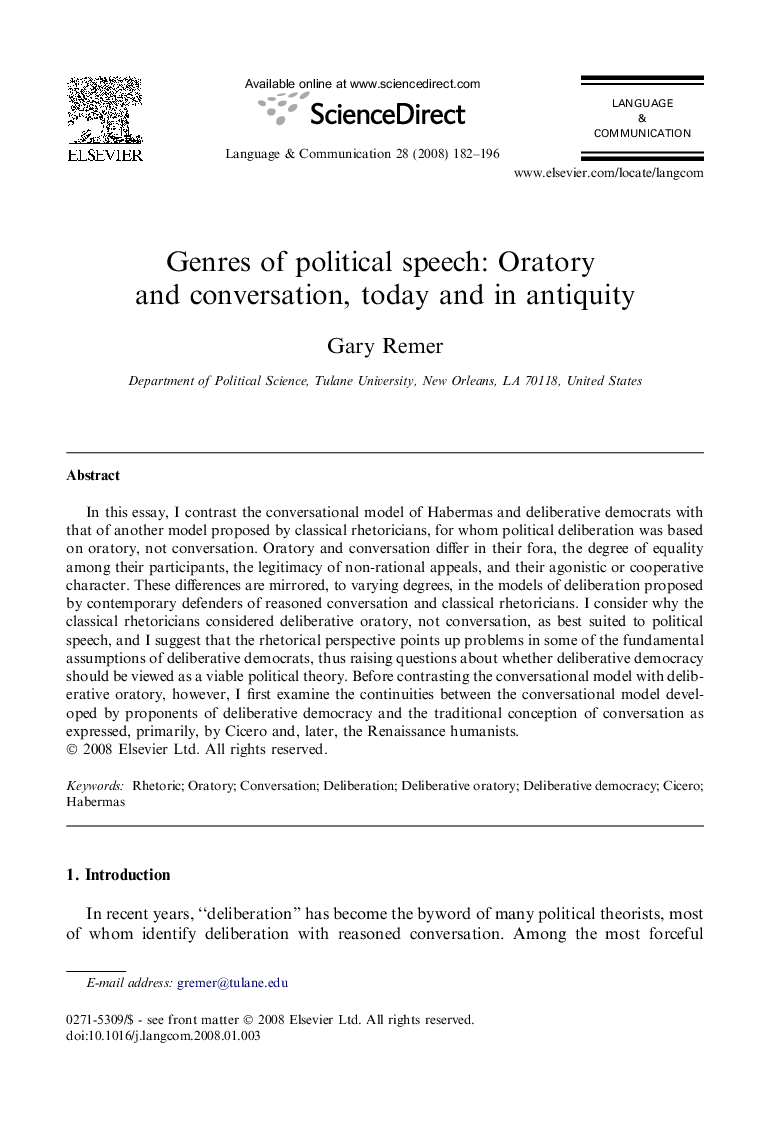| Article ID | Journal | Published Year | Pages | File Type |
|---|---|---|---|---|
| 935168 | Language & Communication | 2008 | 15 Pages |
In this essay, I contrast the conversational model of Habermas and deliberative democrats with that of another model proposed by classical rhetoricians, for whom political deliberation was based on oratory, not conversation. Oratory and conversation differ in their fora, the degree of equality among their participants, the legitimacy of non-rational appeals, and their agonistic or cooperative character. These differences are mirrored, to varying degrees, in the models of deliberation proposed by contemporary defenders of reasoned conversation and classical rhetoricians. I consider why the classical rhetoricians considered deliberative oratory, not conversation, as best suited to political speech, and I suggest that the rhetorical perspective points up problems in some of the fundamental assumptions of deliberative democrats, thus raising questions about whether deliberative democracy should be viewed as a viable political theory. Before contrasting the conversational model with deliberative oratory, however, I first examine the continuities between the conversational model developed by proponents of deliberative democracy and the traditional conception of conversation as expressed, primarily, by Cicero and, later, the Renaissance humanists.
